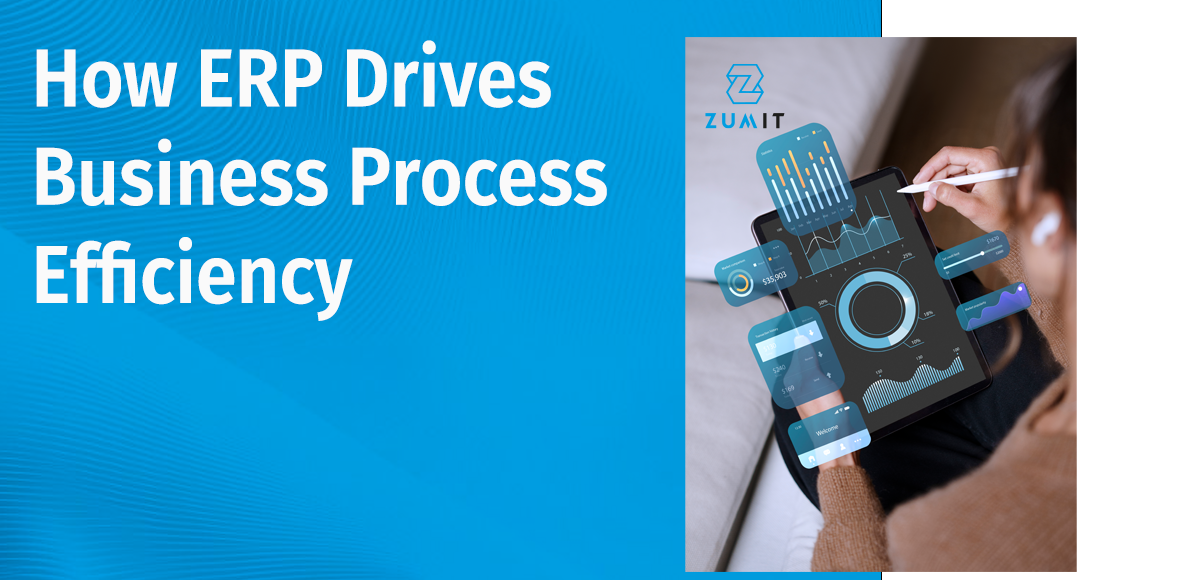
How ERP Drives Business Process Efficiency
The Purpose of This Article
Imagine having all your company’s important information in one place. That’s what an ERP system does. It’s a software that helps businesses manage everything from money and employees to orders and customers. By putting all the data together, it makes it easier for everyone to work together and get things done faster.
To truly understand the power of ERP systems, businesses must delve into their benefits. These systems are not merely tools; they are agents of change, reshaping how organizations operate and grow. By analysing these advantages, businesses can make informed decisions about how to implement ERPs to positively impact their operations.
This article will provide a detailed overview of the practical benefits offered by ERP systems, including improvements in operational efficiency, decision-making, cost savings, customer service, and data management. Through this analysis, we will illustrate how ERPs empower businesses to effectively compete and achieve sustainable growth.
Benefits of an ERP System
Business efficiency serves as the foundation for sustainable growth and competitiveness in today’s fast-paced market. To stay ahead, organizations must continuously improve their operations, streamline workflows, and harness the power of technology. Enterprise Resource Planning (ERP) systems have emerged as vital tools for driving operational excellence, as they integrate various business functions, minimize inefficiencies, and boost overall productivity.
ERP systems drive efficiency by automating repetitive tasks, standardizing processes, and providing real-time visibility into key business metrics. They streamline supply chain operations, improve production planning, and enhance decision-making through data-driven insights. Additionally, ERP solutions facilitate seamless collaboration across departments, ensuring smooth communication and reducing operational silos.
We explore the key efficiency-driven benefits of ERP implementation, including process automation, supply chain and procurement optimization, improved production and manufacturing workflows, project management enhancement, and financial compliance. It also highlights how ERP systems improve workforce productivity, scalability, cost reduction, inventory management, and risk mitigation.
With a well-implemented ERP system, businesses can achieve peak efficiency, reduce costs, improve resource allocation, and enhance customer satisfaction—all crucial factors for long-term success.
Streamline operations & Automation
ERP systems play a crucial role in streamlining business operations by centralizing data and standardizing processes to ensure consistency across departments. They automate repetitive tasks, significantly increasing productivity while integrating various business functions to eliminate operational silos. Standardized workflows enforced through ERP systems help reduce errors and enhance overall efficiency.
Real-time Data & Decision-making
By providing a single source of real-time data, ERP systems empower businesses with enhanced decision-making capabilities. Instant analytics and reporting allow for quicker responses to changing business conditions. ERP systems also facilitate accurate forecasting across all departments, eliminating data silos and minimizing the risk of errors.
Supply Chain & Procurement Optimization
ERP systems optimize supply chain and procurement activities by improving demand forecasting and inventory control. Automated procurement processes reduce manual effort, while end-to-end visibility enhances inventory and logistics management. Supplier collaboration improves through integrated portals, and automated bill of materials (BOM) and purchase order generation streamline the fulfilment process based on customer orders.
Improved Production & Manufacturing Efficiency
ERP solutions integrate Material Requirements Planning (MRP) to optimize resource allocation, enhance production planning and scheduling, and automate production processes to minimize errors. Real-time data access supports informed decision-making, while seamless material transfers prevent shortages and production delays.
Improved Project Management
By centralizing project data, ERP systems provide comprehensive management tools that monitor workflows and prevent overlapping responsibilities. This ensures timely task completion, reduces delays, and enhances overall business productivity by improving team coordination and reducing confusion.
Financial & Compliance Benefits
ERP systems enhance financial management and regulatory compliance through automated financial reporting and real-time cash flow tracking. Built-in compliance features adhere to industry standards such as GDPR and GAAP, while automated compliance report generation and detailed audit trails improve transparency and accountability.
Workforce Productivity
ERP systems increase workforce productivity by automating workflows to reduce administrative burdens. A unified platform enhances employee collaboration, while user-friendly interfaces ensure quick adoption. Mobile accessibility supports flexible work arrangements, and integrated communication tools facilitate better coordination and reduce delays.Customer Experience Enhancement
Enhanced customer experience is a key benefit of ERP systems, as they improve order accuracy and fulfilment times. Real-time access to customer data enables efficient order tracking and personalized service. Automation of order-to-cash cycles speeds up processing, while demand forecasting ensures timely deliveries. Automated communication tools enhance engagement, and efficient after-sales services contribute to customer loyalty.
Scalability & Adaptability
ERP solutions support business growth and expansion with a modular design that allows flexible functionality additions. Cloud-based solutions enhance adaptability, accommodating new users, processes, and markets. This prevents costly system overhauls and ensures a future-proof ERP strategy.Cost Reduction
Cost efficiency is a major advantage of ERP implementation. By eliminating redundant systems, IT costs are lowered. Optimization of inventory and resource allocation minimizes waste, while automation of processes reduces labor costs. Increased employee productivity through intuitive interfaces and mobile accessibility further contributes to cost savings.
Better Inventory Management
ERP systems improve inventory management by providing real-time tracking of stock across multiple warehouses and in transit. Enhanced inventory control prevents stockouts and ensures optimal stock levels to meet customer demand. Visibility into inventory data allows for accurate decision-making and efficient supply chain operations.
Risk Management
Risk management is strengthened through ERP systems by enabling businesses to identify and evaluate potential risks. ERP tools facilitate the selection and implementation of appropriate risk responses, helping organizations manage uncertainty inherent in projects and operations effectively.


Leave a Comment